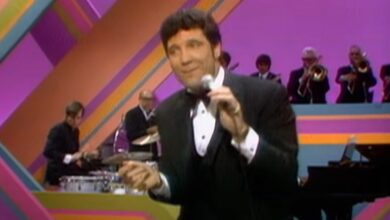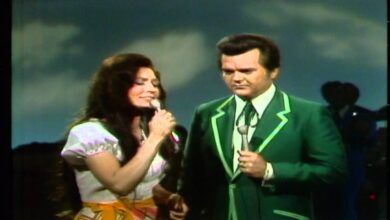Sam Cooke’s Timeless Anthem: The Story Behind ‘A Change Is Gonna Come’
In 1963, Sam Cooke composed “A Change Is Gonna Come,” a song that would become a defining anthem of the Civil Rights Movement. The inspiration for this profound piece stemmed from personal experiences with racial discrimination, notably an incident in Shreveport, Louisiana, where Cooke and his entourage were denied lodging at a whites-only motel. This event deeply affected him, fueling his desire to address the struggles of African Americans through his music.
The song’s composition was also influenced by Bob Dylan’s “Blowin’ in the Wind.” Cooke was moved that such a poignant song about racism in America could come from someone who was not Black, and felt compelled to write something similarly impactful. Additionally, Martin Luther King Jr.’s “I Have a Dream” speech further inspired Cooke, leading him to believe that music could be a powerful tool for social change.
Recording “A Change Is Gonna Come” was a meticulous process. Cooke collaborated with arranger René Hall, who crafted a lush orchestral arrangement to complement the song’s solemn tone. The recording session took place on January 30, 1964, at RCA Studios in Hollywood, with a full string section and other orchestral elements enhancing the track’s depth and emotion.
Upon its release in December 1964, “A Change Is Gonna Come” was not an immediate commercial success, peaking at number 31 on the Billboard Hot 100 chart. However, its profound lyrics and emotive delivery resonated deeply with listeners, especially within the African American community, solidifying its place as a timeless anthem for change and equality.
Tragically, Sam Cooke was fatally shot in Los Angeles on December 11, 1964, just weeks before the song’s release. His untimely death added a poignant layer to the song’s message, as many mourned the loss of a voice that had so eloquently captured the struggles and hopes of a generation.
Over the years, “A Change Is Gonna Come” has been covered by numerous artists, each bringing their own interpretation to the song while preserving its core message of hope and perseverance. Artists like Aretha Franklin, Otis Redding, and Al Green have all paid homage to Cooke’s masterpiece, ensuring its continued relevance across generations.
The song’s enduring legacy is evident in its numerous accolades. In 2007, it was selected for preservation in the Library of Congress by the National Recording Registry, being deemed “culturally, historically, or aesthetically significant.” In 2021, Rolling Stone magazine placed it at number 3 on its list of the “500 Greatest Songs of All Time.”
Beyond its musical impact, “A Change Is Gonna Come” has been featured in various films, documentaries, and events that highlight the Civil Rights Movement. Its powerful message continues to inspire activists and artists alike, serving as a reminder of the enduring struggle for equality and justice.
In contemporary times, the song has seen a resurgence, being used in movements advocating for social justice and equality. Its timeless message resonates with new generations, underscoring the ongoing relevance of Cooke’s poignant lyrics and soulful delivery.
Sam Cooke’s “A Change Is Gonna Come” stands as a testament to the power of music to inspire change. Its rich history, from its inception to its lasting impact, underscores the song’s significance as both a personal expression and a universal anthem for hope and transformation.
The song’s influence extends beyond the realm of music. It has been referenced in political speeches, including President Barack Obama’s 2008 victory speech, where he echoed the song’s sentiment, stating, “It’s been a long time coming, but tonight, change has come to America.”
The evocative lyrics of “A Change Is Gonna Come” have also been analyzed in academic circles, with scholars examining its role in articulating the collective aspirations and struggles of the African American community during the 1960s.
Musically, the song represents a departure from Cooke’s earlier, more lighthearted hits. Its orchestral arrangement and solemn tone showcase his versatility as an artist and his willingness to tackle serious, socially relevant themes.
The recording process of the song was notably intense. Cooke, known for his perfectionism, worked closely with arranger René Hall to ensure that every element of the track conveyed the depth of its message.
Despite initial reservations from his record label about the song’s commercial viability, Cooke remained steadfast in his commitment to releasing it, believing deeply in its message and its potential impact.
Today, “A Change Is Gonna Come” continues to be a beacon of hope and a reminder of the enduring fight for justice. Its legacy is a testament to Sam Cooke’s profound impact on music and society.



